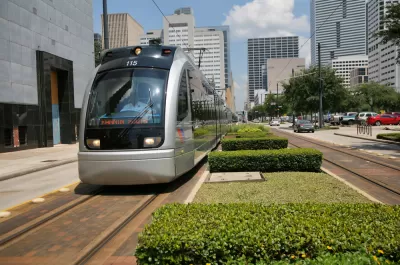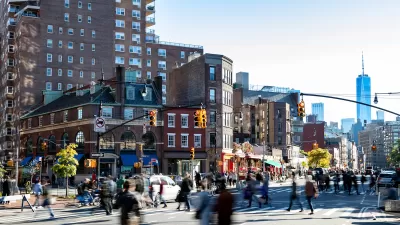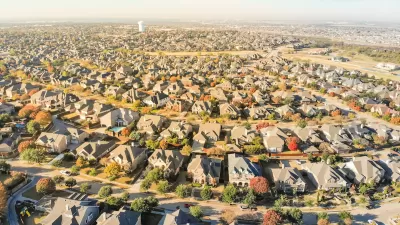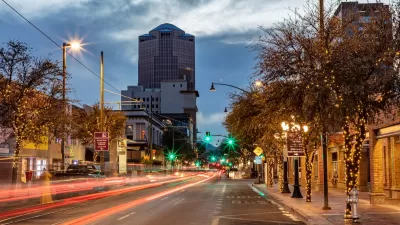After a three quarters of a century of building to accommodate cars and not people, it's going to take big changes to get the transit system the United States needs, argues a Next City editorial.

As people around the country protest highway expansions, it seems to Adie Tomer and Jeffery Gutman (authors of a recent op-ed in Next City) that the time when, "Transportation engineers and planners designed transportation networks with seemingly one goal in mind: to move vehicles as quickly as possible," has come to an end. As people and planners come to value walkability and access, transit will have to change. "These trends signal a transition away from an outdated model focused on moving vehicles to a new approach focused on getting people where they want to go," the Next City piece argues.
But, wishing doesn't make it so.
Tomer and Gutman caution that it will take changes not just to our buses or trains, but to the systems that we use to build, evaluate and maintain our transportation infrastructure. " Maximizing access will also require new frameworks to govern the built environment." Upsetting the current state of things means a lot of educating, negotiating and upsetting those that are invested in the old ways of doing things. "Formal guidebooks must be revised to reflect updated thinking. Political battles must be waged with actors looking to maintain the status quo, including developers who’ve already invested in land on the urban fringe." Still, the authors say, the need is real and many Americans have already demonstrated an appetite for this change, the work can be done, but it won't be easy.
FULL STORY: Why It Will Take More Than Light Rail to Fix U.S. Transit

Maui's Vacation Rental Debate Turns Ugly
Verbal attacks, misinformation campaigns and fistfights plague a high-stakes debate to convert thousands of vacation rentals into long-term housing.

Planetizen Federal Action Tracker
A weekly monitor of how Trump’s orders and actions are impacting planners and planning in America.

In Urban Planning, AI Prompting Could be the New Design Thinking
Creativity has long been key to great urban design. What if we see AI as our new creative partner?

How Trump's HUD Budget Proposal Would Harm Homelessness Response
Experts say the change to the HUD budget would make it more difficult to identify people who are homeless and connect them with services, and to prevent homelessness.

The Vast Potential of the Right-of-Way
One writer argues that the space between two building faces is the most important element of the built environment.

Florida Seniors Face Rising Homelessness Risk
High housing costs are pushing more seniors, many of them on a fixed income, into homelessness.
Urban Design for Planners 1: Software Tools
This six-course series explores essential urban design concepts using open source software and equips planners with the tools they need to participate fully in the urban design process.
Planning for Universal Design
Learn the tools for implementing Universal Design in planning regulations.
Gallatin County Department of Planning & Community Development
Heyer Gruel & Associates PA
JM Goldson LLC
Mpact (founded as Rail~Volution)
City of Camden Redevelopment Agency
City of Astoria
Jefferson Parish Government
Camden Redevelopment Agency
City of Claremont





























